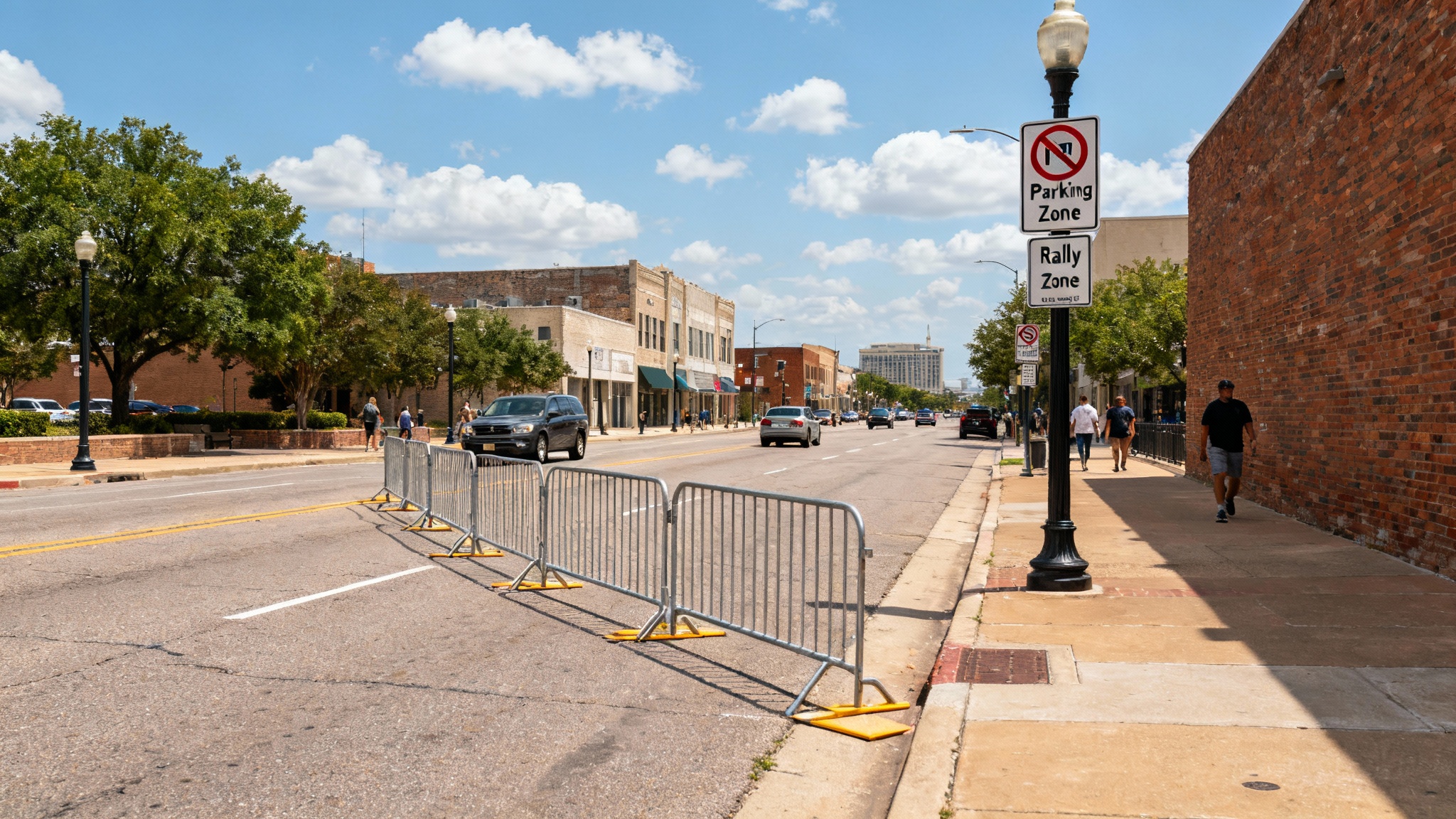"No Kings" Rally in Arlington: Uniting Community or Deepening Divide?
Arlington Shoutouts™
Archives
"No Kings" Rally in Arlington: Uniting Community or Deepening Divide?
SIGN UP FOR OUR NEWSLETTER
“No Kings” Rally Set for Arlington: Civic Expression or Sign of Local Division? |
Supporters call it peaceful resistance. Opponents call it a political provocation. Arlington is left to grapple with the fallout either way. |

Janice “Jan” Holloway
Sep 14, 2025
“No Kings” in North Texas: A Symbol of Civic Expression or a Sign of Growing Division?
As North Texas braces for another round of demonstrations under the “No Kings” banner, including a newly announced rally set for October 18 on Abram Street in Arlington, the region finds itself once again at the crossroads of political expression and cultural tension.
Framed by organizers as a peaceful protest against the influence of President Donald Trump and broader concerns of authoritarianism, the movement has drawn strong reactions, both support and opposition, highlighting a widening rift that increasingly defines American public life.
The Protesters’ View: Civic Responsibility and Democratic Safeguards
Supporters of the “No Kings” movement argue that their rallies are acts of civic engagement, a call to uphold democratic values and resist what they perceive as creeping authoritarianism.
They emphasize nonviolence and constitutional rights, citing concerns ranging from immigration policy enforcement to executive overreach. The Arlington protest, like others in Dallas and Fort Worth, is seen by organizers as a local stand in a national conversation.
For many attendees, it’s not about party allegiance but about protecting the principles of checks and balances and voicing discontent with the direction of national leadership, both past and, in their view, potentially future.
The Opposition’s Stance: Divisive Messaging and Political Provocation
Critics, largely from conservative circles, take a markedly different view. Some characterize the rallies as needlessly inflammatory, accusing organizers of perpetuating division and fueling resentment rather than fostering unity.
The phrase “No Kings” itself, they argue, carries a tone of hyperbole, one that paints political opponents as tyrants and vilifies half the country.
Concerns have also been raised about the timing and tone of the rallies, with some opponents suggesting the events are orchestrated more to provoke than to persuade.
Others warn that the underlying message may inadvertently de-legitimize lawful political processes and institutions simply because certain outcomes or leaders are unpopular with one side.
A Troubling Sign: Dialogue Lost in the Noise
What’s perhaps most concerning about the upcoming rally in Arlington isn’t just the protest itself, but what it reveals about the broader civic landscape.
Neither side shows much interest in understanding the other. One sees itself as defending democracy; the other sees a theatrical attack on it.
As the gap between worldviews grows wider, the middle ground, where meaningful dialogue, compromise, and shared understanding might once have existed, seems increasingly barren.
The deeper issue is not about who is “right” or “wrong,” but what happens to a community, a state, or a nation when both sides move further apart with every controversy.
When symbolic gestures, like a street protest, become flashpoints rather than starting points, even peaceful action can stoke distrust and deepen animosity.
The Inherent Danger of Entrenched Division
America has long prized free expression and spirited political debate. But when nearly every act of protest or speech is instantly cast as either patriotic or subversive, necessary or dangerous, noble or evil, there’s little room left for nuance.
The upcoming “No Kings” rally in Arlington may be one of many across Texas, but its implications are anything but local. It reflects a broader trend: the hardening of positions, the erosion of empathy, and the slow unraveling of shared civic identity.
In this environment, peaceful protests, on either side, are no longer merely exercises in free speech. They risk becoming signals in a culture war that few are trying to end. |
